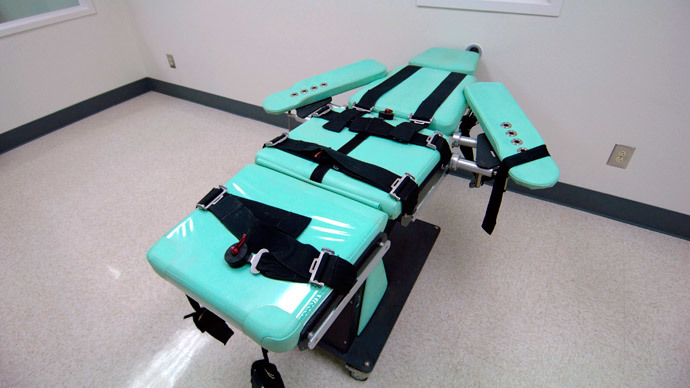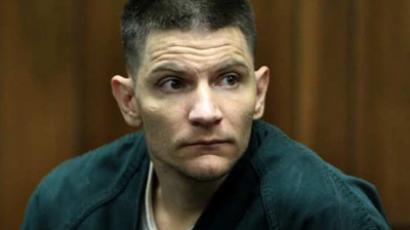California's 'dysfunctional' death penalty struck down, ruled unconstitutional

A federal judge has struck down the death penalty in California, declaring it unconstitutional due to lengthy delays in execution. The judge vacated the death sentence for a man condemned to die by the state nearly two decades ago.
US District Judge Cormac J. Carney, who was appointed by former President George W. Bush, heard the case of Ernest Dewayne Jones. The death row inmate was sentenced on April 7, 1995. He was convicted for the 1992 rape and killing of Julia Miller, his girlfriend’s mother. The murder occurred 10 months after Jones was paroled for a previous rape conviction, the Los Angeles Times reported.
In his ruling released Wednesday, Carney noted the death row inmate faced “complete uncertainty as to when, or even whether" he would be executed.
“Allowing this system to continue to threaten Mr. Jones with the slight possibility of death, almost a generation after he was first sentenced, violates the Eighth Amendment’s prohibition against cruel and unusual punishment,” the judge wrote in his decision.
Since the death penalty was reinstated in the US in 1978, California has sentenced more than 900 people to die. Only 13 of those inmates have been executed, while 94 have died of other causes. Another 39 were granted relief by the courts. Now a total of 748 languish on death row, with more than 40 percent of those being imprisoned for more than 19 years. Nearly all of them are still litigating the merits of their death sentence, which usually takes at least 25 years, according to the California Department of Justice.
A 2004 bipartisan panel, the California Commission on the Fair Administration of Justice, found the system “dysfunctional” in its report on delays in administration of the death penalty. “The system is plagued with excessive delay in the appointments of counsel for direct appeals and habeas corpus petitions, and a severe backlog in the review of appeals and habeas petitions before the California Supreme Court,” the report concluded.
Carney found the systemic delays meant that arbitrary factors, rather than things like the nature of the crime, decided whether an inmate would be executed, which he ruled to be unconstitutional.
For the nearly 750 Californians still on death row, the judge wrote, “the dysfunctional administration of California’s death penalty system has resulted, and will continue to result, in an inordinate and unpredictable period of delay preceding their actual execution.”
“Indeed,” he continued, “for most, systemic delay has made their execution so unlikely that the death sentence carefully and deliberately imposed by the jury has been quietly transformed into one no rational jury or legislature could ever impose: life in prison, with the remote possibility of death.”
Natasha Minsker, a director of the ACLU of Northern California, told the LA Times that Carney’s ruling is the first time a judge has declared the state’s current death penalty unconstitutional. She also said it was the first time that a judge ruled the systemic delays were unconstitutional because they served no legitimate purpose.
The ruling can be appealed to the US 9th Circuit Court of Appeals. A spokeswoman for California Attorney General Kamala D. Harris told the Times that the office is reviewing the decision.













